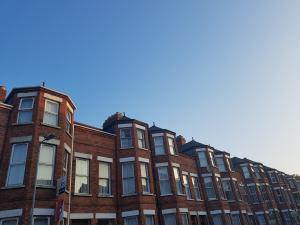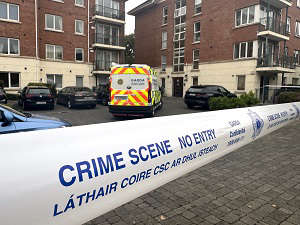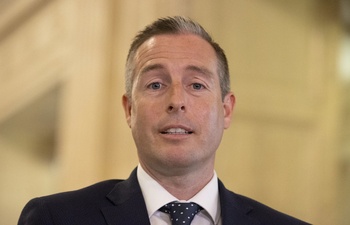
By Q Radio News
House prices in Northern Ireland are stabilising as the market moves out of lockdown, according to new research.
The latest Quarterly House Price Index report from Ulster University has pointed to high levels of houes-buying activity as it re-emerges from COVID-19 ‘lockdown’.
The University research, which has been produced in partnership with the Northern Ireland Housing Executive and Progressive Building Society, analyses the performance of the Northern Ireland housing market during the second quarter of 2020 (April, May and June).
The Index reveals only a slight reduction in average house prices over that period, with a residential property in Northern Ireland currently fetching £175,551, which is an annual level of growth of 5.8 per cent since the same period in 2019.
The first quarter of the year, January to March, returned a reduced survey sample, down 23 per cent in comparison with the same period in 2019, and this trend has carried forward into Q2.
The prolonged nature of the lockdown and furlough measures within Q2 meant that the market was essentially not ‘open for business’ for two months of the quarter.
That said, the re-opening of the housing market has witnessed strong levels of market enthusiasm, as well as a marked uplift in transactions.
In terms of the volume of sales within the housing market in Q2, compared to the same period in 2019, the varied response from agents suggested that across NI the impact of COVID-19 has been uneven, and more evident in some market areas than others.
Apartment properties have seen an 11.5 per cent decline in average prices across the quarter, while terrace and semi-detached sectors have also decreased.
However, average prices for detached houses have increased by 5 per cent, with only a nominal overall change across all property types in Northern Ireland.
Considering the ongoing economic climate and uncertainty entering into the second half of 2020 and the associated implications for the housing market going forward over the next six months, a number of estate agents indicated that the lending environment is key to ensuring housing market stability.
Estate agents commented that they had seen a flurry of activity and a high volume of new listings and viewings, and a number noted that viewings were translating into firm offers often via ‘bidding wars’ as the market progresses out of lockdown.
Lead Researcher, Dr Martin Hinch, Research Associate in Performance and Analysis of Residential Property Markets at Ulster University said:
“The second quarter of 2020 has been dominated by the pandemic, and the resultant restrictions imposed upon sales transactions for the majority of the period.
"Despite the challenges imposed by the ‘lockdown’ the Northern Irish housing market has re-emerged displaying the same buoyancy and demand that was apparent in the first quarter, most likely due to an accumulation of delayed transactions from pre-lockdown sales and new interest generated during the period of inactivity.
“Moving forward, market stability and resilience appear to be continuing, with only a slight reduction in price over the quarter, and annual increase compared to Q2 2019.
"During the coming months several influential factors will undoubtedly play their part in market performance, such as the scale and impact of the economic recession, the course of the continuing pandemic and the ongoing management of the UK’s departure from the EU.
“Close observation during the second half of 2020 will ascertain the direction of the market moving forward and the degree of market resilience.”
Michael Boyd, Deputy Chief Executive and Finance Director, Progressive Building Society, said: “Infrastructure projects and the housing market will play an important role in the recovery, as a catalyst for the wider economy.
"The housing market in Northern Ireland is resilient, it is in a much better position to face economic upheaval than it was 10 years ago and it remains one of the most affordable regions in the UK to purchase a home.
“While many challenges remain, these are invaluable characteristics in maintaining vibrancy in the market in both the short and long term”.
Karly Greene, Head of Research with the Housing Executive, which commissions the research, said: “While the housing market was essentially closed for much of the second quarter, there was demand in housing markets across Northern Ireland once restrictions were lifted.
"The evidence available doesn’t show any marked change in pricing in the period immediately after restrictions eased, and the feedback from estate agents shows a level of optimism that this demand, along with reasonably stable pricing, will continue, at least in the short term.
“Looking ahead, for both the housing market and the wider economy, much now depends on the ability to steer a steady course to recovery and avoid any further periods of ‘lockdown’.
"We expect that a clearer picture of the impacts of Covid-19 should emerge as monitoring continues during the latter half of the year.”


 Adams confirms legal action against Government block on internment payout
Adams confirms legal action against Government block on internment payout
 Teenager dies following suspected stabbing attack in Dublin
Teenager dies following suspected stabbing attack in Dublin
 Challenge to minister’s decision to refuse integrated school proposals dismissed
Challenge to minister’s decision to refuse integrated school proposals dismissed
 Thieves make off with ‘significant sum of cash’ from filling station ATM
Thieves make off with ‘significant sum of cash’ from filling station ATM
 Strike action by Northern Ireland nurses ‘imminent’, RCN warns
Strike action by Northern Ireland nurses ‘imminent’, RCN warns